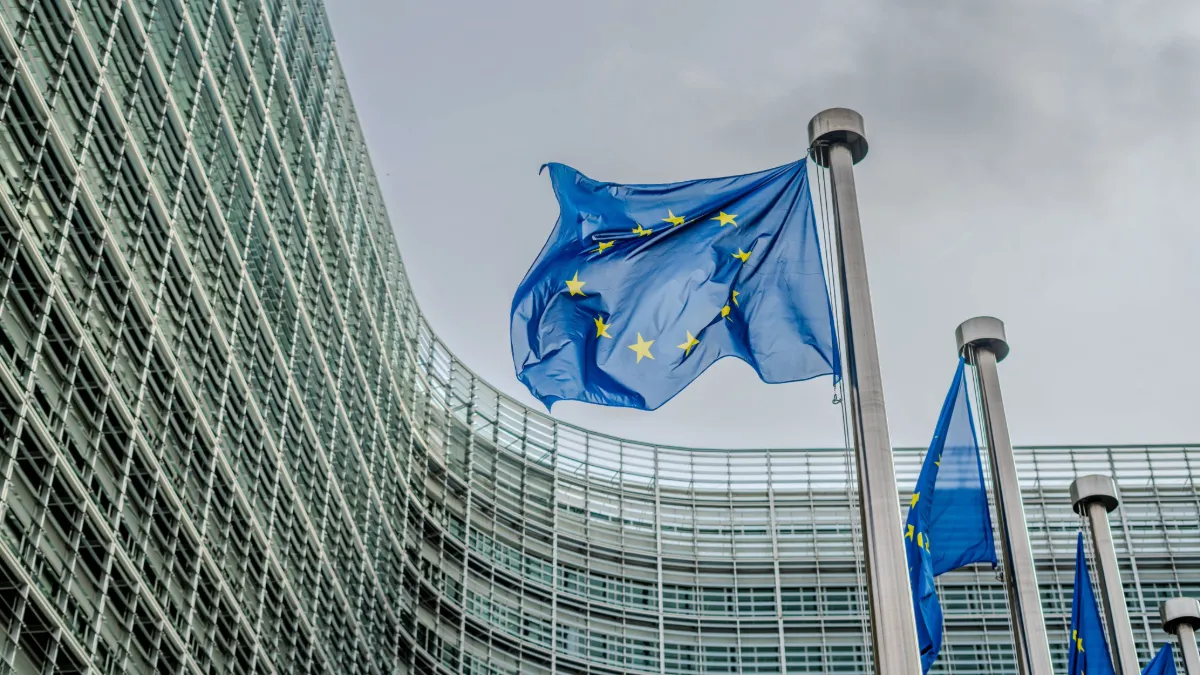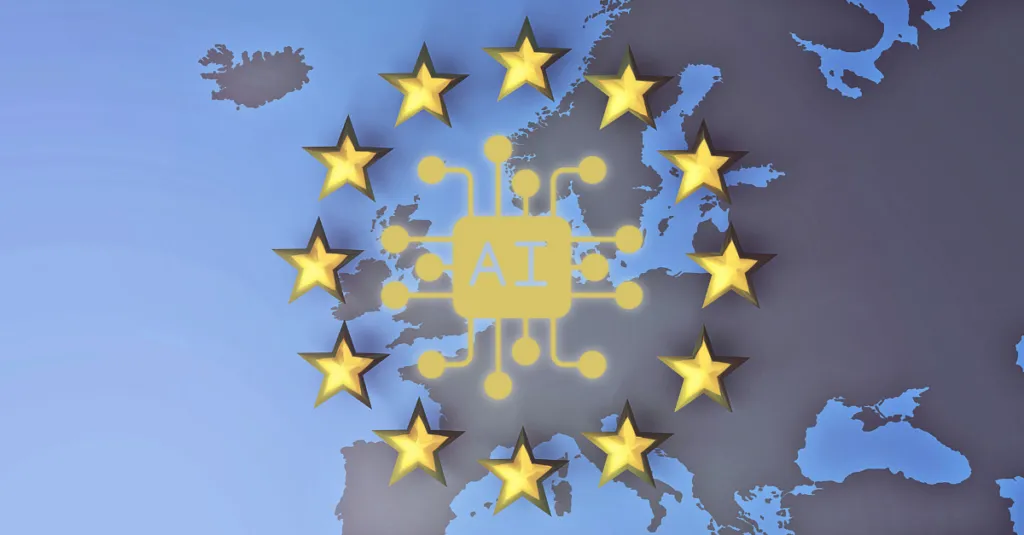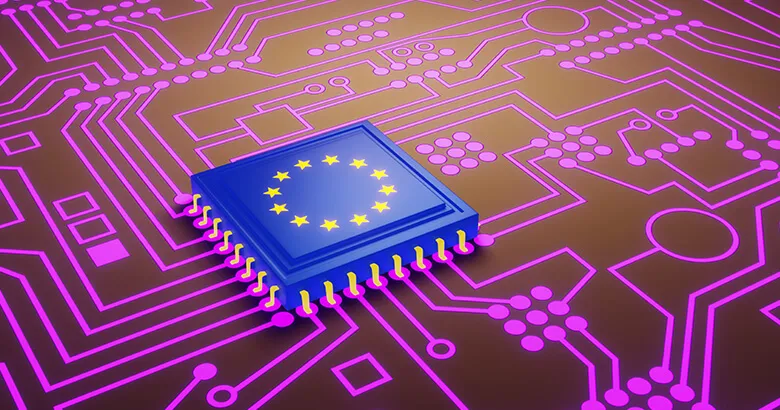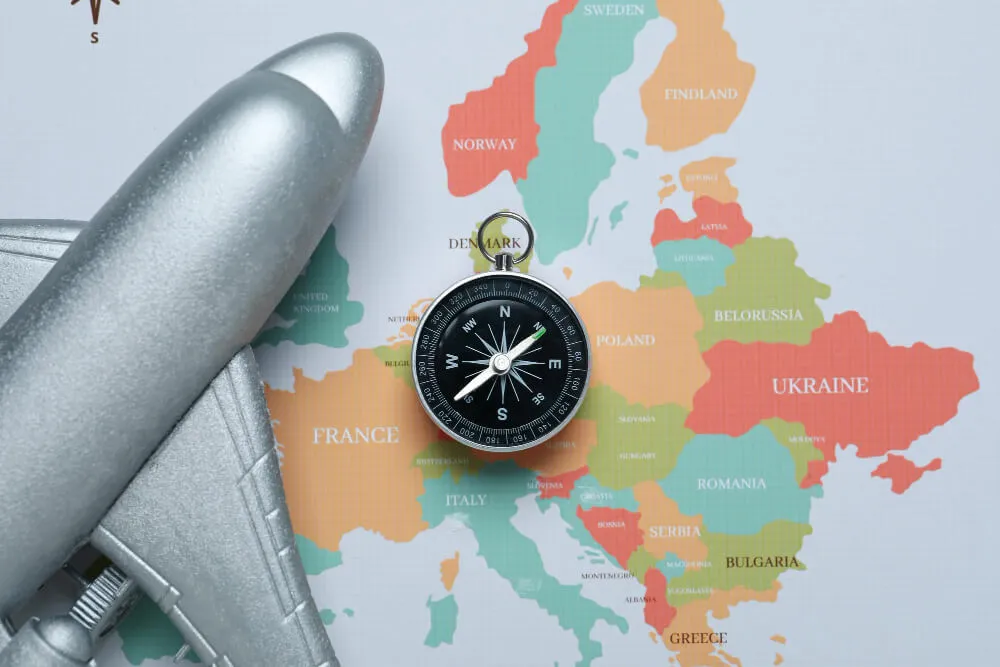
Impact of EU Regulations on Tech Companies: What You Need to Know in 2025
The Impact of EU Regulations on Tech Companies have prolonged been at the main edge of regulating the digital economy, with an emphasis on privateness, competition, and purchaser protection. In 2025, these rules preserve to have profound implications for tech agencies working throughout Europe and beyond.
While many see EU guidelines as a vital step to shield customers and make certain sincere competition, others argue they pose annoying situations for innovation, boom, and global competitiveness. In this weblog, we discover the important thing EU tech pointers, their impact on corporations, and what tech organizations must prepare for.
You May Also Like: Unlocking Europe's Green Future: How Startups Can Leverage the EU Innovation Fund
The Growing Role of EU Tech Regulations

Over the past decade, the EU has regularly improved its have an impact on over the tech location. Europe’s approach regularly differs from the extra palms-off hints seen inside the U.S. Or factors of Asia. The EU prioritizes:
- Data Privacy
- Digital Competition
- Online Platform Accountability
- AI Regulation and Ethics
- Cybersecurity Requirements
- The regulatory surroundings aims to stability technological improvement with person rights and societal values.
However, for tech businesses—whether or now not worldwide giants like Google, Meta, and Amazon, or European startups—the EU's evolving jail panorama gives each compliance responsibilities and strategic demanding situations.
Key EU Tech Regulations Shaping the Industry
1. General Data Protection Regulation (GDPR)
The GDPR, enacted in 2018, is arguably the area’s maximum well-known records privacy law. It sets strict policies on:
How private data is collected, stored, and used
User consent necessities
Data breach notification timelines
Severe penalties for non-compliance (as tons as €20 million or 4% of worldwide turnover)
Impact on Tech Companies:
Increased funding in statistics protection infrastructure
Global businesses compelled to update privacy policies worldwide
Risk of giant fines for violations
GDPR has turn out to be a blueprint for comparable felony tips in unique regions, making EU standards a global benchmark.
2. Digital Markets Act (DMA)
The DMA, which came into force in 2023, dreams large online structures—distinct as "gatekeepers"—to make certain honest opposition. It applies to tech giants meeting unique thresholds for market effect.
Key Requirements:
Prohibition on self-preferencing services
Restrictions on combining personal statistics throughout systems with out consent
Mandatory interoperability for messaging offerings
Impact:
Limits on monopolistic practices
More possibilities for smaller European tech game enthusiasts
Increased prison scrutiny for Big Tech companies like Apple, Google, and Meta
3. Digital Services Act (DSA)
Effective for the reason that 2024, the DSA specializes in regulating online systems to lessen illegal content material material, disinformation, and customer dangers.
Obligations Include:
Transparent algorithms for content material material moderation
Swift removal of unlawful content
Annual threat checks for systemic structures
Empowerment of independent regulators and EU oversight
Impact:
Higher operational costs for compliance
Stricter responsibilities for structures with over 45 million Impact of EU Regulations on Tech Companies
Potential for international shifts in platform governance
4. AI Act
The EU AI Act, finalized in 2024, is the number one entire regulation of artificial intelligence globally.
Risk-based Framework:
Unacceptable Risk AI: Banned (e.G., social scoring, mass surveillance)
High-Risk AI: Subject to strict requirements (e.G., clinical devices, recruitment gear)
Limited Risk AI: Transparency duties (e.G., chatbots)
Minimal Risk AI: No huge regulations
Impact:
AI builders ought to check and classify their systems
Compliance charges for immoderate-danger AI packages
Competitive area for AI companies aligning with moral requirements.
Read Also: European Pickup Trucks Market Share: Future Outlook
5. Data Act (Upcoming)

Expected to roll out in levels with the aid of 2025–2026, the Data Act makes a speciality of non-private statistics sharing to foster innovation, particularly in IoT (Internet of Things) and industrial sectors.
Key Provisions:
Users’ proper to get admission to information generated with the aid of related gadgets
Fairness in information-sharing contracts
Protection of exchange secrets and techniques
Avoiding abuse with the resource of dominant facts holders
Potential Impact:
Increased statistics get right of access to for SMEs
Legal readability in facts possession
Greater interoperability across structures and devices
Global Tech Companies vs. EU Regulations
For global tech giants, complying with EU legal guidelines has turn out to be non-negotiable:
Fines & Penalties: Meta confronted billions in GDPR-related fines. Amazon, Google, and TikTok have also been dreams of EU enforcement.
Operational Changes:
Apple opened iOS sideloading alternatives in Europe due to DMA necessities.
Google modified search effects to conform with anti-self-preferencing guidelines.
Platforms like X (formerly Twitter) face strict obligations underneath the DSA.
Challenges Include:
Increased compliance fees
Fragmentation of product services during areas
Legal uncertainty as guidelines evolve
However, adapting to EU guidelines additionally gives market balance and patron believe—key belongings for prolonged-term growth.
Impact on European Tech Startups
While Big Tech faces policies, EU regulations additionally gift opportunities for local startups and SMEs:
Advantages for Startups:
Level playing area through manner of curtailing monopolistic practices
Data portability helps opposition
Consumer accept as actual with better with the resource of sturdy privacy requirements
Regulatory alignment fosters innovation in ethical AI
Challenges:
Complex compliance requirements even for small agencies
Need for criminal know-how and regulatory assets
Risks of decreased scalability if merchandise fail EU compliance exams
Overall, proactive startups embedding privatenes, equity, and transparency of their tech can advantage aggressive benefits in the EU market.
Strategic Tips for Tech Companies

To navigate EU policies successfully:
Invest in Compliance Early: Building compliant systems from the ground up is greater rate-powerful than retrofitting.
Hire Legal & Data Protection Experts: In-house knowledge reduces the Impact of EU Regulations on Tech Companies.
Monitor Regulatory Developments: EU pointers evolve—live up to date via corporation establishments or criminal advisors.
Foster Ethical Innovation: Align merchandise with privacy, transparency, and fairness requirements to construct take delivery of as genuine with.
Leverage EU Funding: Programs like Horizon Europe provide monetary aid for compliant, modern tech tasks.
Read: ‘Tone-deaf’ fossil gas growth in Europe is speeding climate crisis, say activists
The Future of EU Tech Regulation
Looking in advance:
Increased AI and cybersecurity regulations are anticipated as technology advances
Greater enforcement actions in opposition to non-compliant agencies
Potential global ripple effects, with one of a kind regions adopting EU-inspired rules
Continued debates balancing innovation and law
The EU’s method often sets the tone for international tech coverage. Companies that apprehend and align with EU values—privateness, fairness, safety—are higher located for sustainable fulfillment.
Conclusion
EU guidelines present both traumatic situations and possibilities for tech companies working in Europe. From GDPR to the AI Act, the criminal landscape emphasizes client rights, ethical innovation, and sincere opposition.


